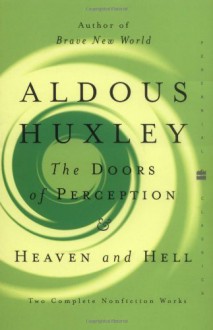
Peter Orullian hasst Klappentexte. Seiner Ansicht nach führt der Versuch, eine Geschichte zusammenzufassen, nur dazu, dass ihr Kern verkannt wird. Er selbst verlässt sich nicht auf die Inhaltsangaben auf den Rückseiten von Büchern, sondern liest grundsätzlich einfach die erste Seite. Dennoch sieht der Autor ein, dass sie ein notwendiges Übel sind. Deshalb existiert der Klappentext seines High Fantasy – Romans „The Unremembered“, Auftakt der Reihe „Vault of Heaven“, in mehreren Varianten. Ich habe gleich drei gefunden. Was Peter Orullian wohl von einer vierten – meiner Version – halten würde?
Als Aeshau Vaal vom Rat der Schöpfer geschaffen wurde, strebten sie Balance an. Doch einer der ihren kümmerte sich nicht um das sensible Gleichgewicht zwischen Gut und Böse. Er verdarb seine Schöpfung, bevölkerte Aeshau Vaal mit scheußlichen Kreaturen, die Blut und Tod verbreiteten. Der Rat bestrafte ihn mit dem Fluch der Stille und verbannte ihn in den Born, getrennt von der übrigen Schöpfung.
Der junge Jägersmann Tahn liebt die alten Legenden, glaubte allerdings nie, dass sie wahr sein könnten. Bis zu dem Tag, an dem er im Wald einem Velle begegnet, einem stilletreuen Magier, der die Energie der Welt missbraucht. Von Furcht überwältigt flieht Tahn – doch seinem Schicksal kann er nicht entkommen. Der schützende Schleier zum Born schwindet. Der Stille regt sich in seinen Ketten. Begleitet von seinem besten Freund Sutter, seiner Schwester Wendra, dem Gelehrten Braethen, der Fern Mira und dem Sheason Vendanj zieht Tahn aus, um den Vormarsch der Stilletreuen aufzuhalten, denn nur er besitzt die Macht, Aeshau Vaal zu retten. Leider bleibt ihre Mission nicht unbemerkt und schon bald wird Tahn vom Jäger zum Gejagten…
Peter Orullian behauptet also, Klappentexte zu hassen. Die bösartige kleine Stimme in meinem Kopf fragt sich, ob er diese Meinung erst entwickelte, als eine Inhaltsangabe für „The Unremembered“ entworfen werden musste. Dieses Buch lässt sich unmöglich zusammenfassen, das musste ich selbst auf die harte Tour feststellen. Meine Variante eines Klappentextes ist definitiv unvollständig, das gebe ich freimütig zu. „The Unremembered“ platzt aus allen Nähten. Ich beziehe mich dabei nicht auf die Seitenanzahl, die sicherlich im oberen Bereich angesiedelt ist. Nein, ich meine den Inhalt an sich. Ich hatte mit dem Reihenauftakt von „Vault of Heaven“ keine schöne Leseerfahrung, denn dieser ist so unglaublich vollgestopft, dass bei mir sehr wenig hängen blieb und ich die Lektüre als extrem anstrengend und schwerfällig empfand. Ich habe allein etwa 300 Seiten gebraucht, um überhaupt reinzukommen, was viel zu lange ist. Da ich reichlich Erfahrung mit High Fantasy habe, bin ich eine ausdauernde Leserin und lasse mich normalerweise von einem behäbigen Einstieg nicht ins Bockshorn jagen, aber dieses Ausmaß an Geduld kann wirklich niemand erwarten. Das Problem bestand nicht darin, dass sich die Handlung zu langsam entwickeln würde, sondern, dass ich einfach nicht verstand, was Orullian mir da aufzutischen versuchte. In diversen Interviews erklärte er, er wollte die klassischen HF-Motive wie Heldenreise und Quest, die sich in „The Unremembered“ mühelos ausfindig machen lassen, neu erfinden, um seine Leser_innen an völlig unbekannte Orte zu führen, die seine unverkennbare Handschrift tragen. Ein nobles Anliegen, das in meinem Fall leider gründlich misslang, weil sein Worldbuilding zu verflixt kompliziert ist, um es beiläufig einfließen zu lassen und die Handlung meiner Meinung nach ein undurchschaubares Dickicht nicht nachvollziehbarer Motivationen darstellt. Ich kann es nicht leiden, wenn man mir nicht verrät, warum Figuren dieses oder jenes tun müssen. Eine Weile ertrage ich Geheimniskrämerei, doch irgendwann müssen die Karten auf den Tisch. In „The Unremembered“ habe ich bis zum Ende nicht kapiert, was die Stilletreuen von dem Protagonisten Tahn wollen und wieso sie ihn verfolgen. Ich habe auch nicht ergründen können, was der junge Jäger eigentlich unternehmen soll, um Aeshau Vaal zu retten. Es frustrierte mich, dass Tahn von dem Magier Sheason Vendanj keine Antworten erhält, obwohl er ihn oft genug fragt. Ich mochte seine Schwester Wendra nicht, die ärgerlicherweise auf ihre Mutterrolle reduziert ist. Ich konnte mir die Stilletreuen nicht vorstellen. All die originellen Ideen, die Orullian mir präsentierte, prallten effektlos an mir ab, weil ich mich in der Geschichte nicht zurechtfand. Es ist ja sehr löblich, dass der Autor Kreativität forcierte – unglücklicherweise hinderte mich diese allerdings daran, zu durchschauen, welche Reise er für mich und die Figuren vorsah.
Das ist es nicht wert. Trotz aller Hochachtung, die ich Peter Orullian entgegenbringe, weil Originalität seine oberste Priorität war, bereitete mir „The Unremembered“ zu wenig Lesespaß, um die Reihe „Vault of Heaven“ weiterzuverfolgen, die durch zahlreiche Kurzgeschichten ohnehin recht unübersichtlich gestaltet ist. Das Buch erschöpfte mich. Ich konnte das komplexe Weltendesign nicht mit der undurchsichtigen Handlung in Einklang bringen. Ich weiß, dass Orullian die Etablierung von Aeshau Vaal natürlich und langsam am Rande vornehmen wollte, ohne allzu offensichtliche Geschichtsstunden zu involvieren, aber meiner Ansicht nach kam ihm dabei die Nachvollziehbarkeit abhanden. Ich glaube außerdem, dass „The Unremembered“ von einem geringeren Umfang profitiert hätte. Kürzere Episoden, leichter verdauliche Handlungsabschnitte, mit anschaulichen Informationen zum Worldbuilding angereichert, hätten die Geschichte meinem Empfinden nach besser transportiert. Der erste Band musste kein 900-Seiten-Wälzer sein. Indem Orullian auf diese Länge bestand, opferte er die Eingängigkeit seines Reihenauftakts und verlor mich weit bevor die Handlung Fahrt aufnahm. Ich bin nicht bereit, mir das noch einmal anzutun und verabschiede mich hiermit aus Aeshau Vaal.


 Log in with Facebook
Log in with Facebook 










